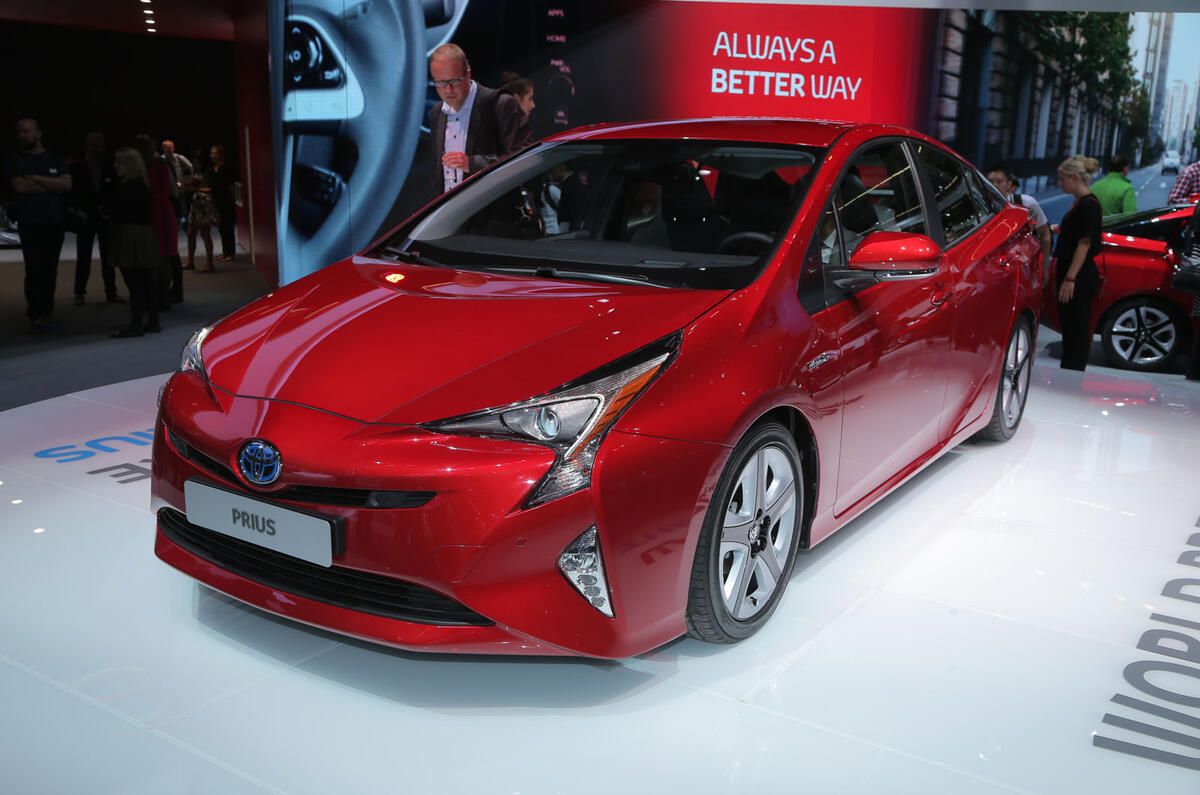The Toyota Prius will cost from £23,295, and is available to order now.
The fourth generation of Toyota’s hybrid will be available in four trims in the UK, and deliveries will start from March 2016.
The range has been revamped to appeal to company car drivers, and comprises Active, Business Edition, Business Edition Plus and Excel trims.
All models come with LED headlights with automatic high beam adjustment, electric powered drivers seat, keyless entry and start, dual-zone air conditioning and the latest version of the Toyota Touch 2 touchscreen entertainment system with DAB digital radio. The entry level trims is Active, which comes with 15in alloy wheels, adaptive cruise control and lane departure warning.
Step up to Business Edition and you get soft-touch cabin trim, a wireless phone charger, blind spot monitoring, heated front seats and a leather-trimmed steering wheel. Business Plus adds 17in alloy wheels, satellite navigation, front and rear parking sensors and a park assist system.
The range topping Excel edition adds leather seats, a premium JBL sound system auto wipers and more connectivity features on the infotainment system.
The new Prius will bring gains in fuel efficiency and CO2 emissions of around 18%, the Japanese firm has confirmed.
Toyota is adopting styling cues from the Toyota Mirai fuel-cell vehicle for the latest generation of its hybrid, which made its public debut at the Frankfurt motor show. Now the company has released more technical details in the build-up to the car's debut in its home market, where Toyota hybrids regularly fill two of the top three positions on the sales charts.
The powertrain is an updated version of the existing combination of a 1.8-litre petrol engine and an electric motor, featuring a more compact nickel-metal hydride battery pack that's quicker to charge. The combustion engine produces of 97bhp and 105lb ft, while the electric motor brings 71bhp. Toyota also says it has revised the Prius's regenerative braking system, introducing a new active hydraulic booster that's designed to be quieter and give a more natural feel to the brake pedal.
Toyota hasn’t issued any definitive CO2 emissions or fuel economy figures - it says EU NEDC numbers will be released at a later date - but it has revealed that this Prius will bring efficiency gains of 18% over its predecessor. That's the biggest jump between generations in Prius history, and could give the car CO2 emissions and combined fuel economy of 73g/km and 85mpg.




















































Join the debate
Add your comment
The opposition
Darth Vader?
If
If this were a, let's say a Ford it would be panned for its ugliness but it is a Toyota. I beg to differ, it is hideous!
Factczech wrote: Toyotas of
This new Prius is far from perfect but it's far less repulsive than a Fiesta or Focus.